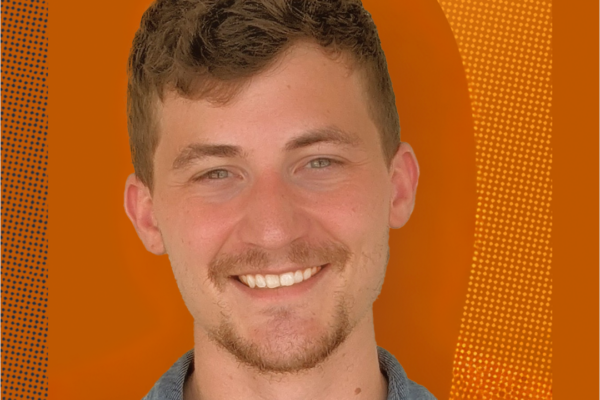Incubating Entrepreneurs
How a collaborative team of faculty and students is giving startup founders a fast start on their entrepreneurial adventure
By Mary Ann Roser

Enterprising students at The University of Texas at Austin are learning the ropes in Rob Adams’ New Venture Creation class. Pioneering start-ups tap into student talent by applying to the TVL Accelerator program at the Jon Brumley Texas Venture Labs. And aspiring founders from both inside and outside the university participate in the twice-yearly Shark Tank-style TVL Investment Competition.
Desert Door
Distilling Wild Sotol in Texas
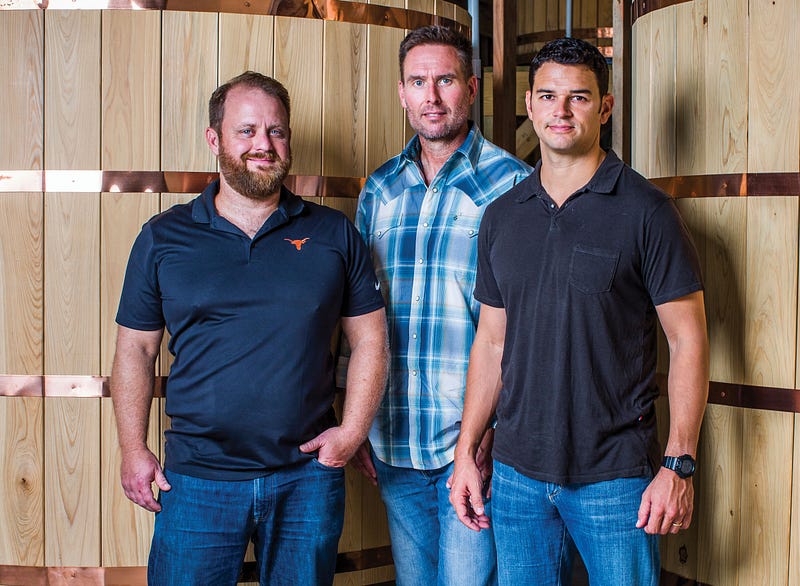
His uncle raved about it. He said it’d be memorable. And for Judson Kauffman, MBA ’17, his first sip of moonshine certainly was. Kauffman’s a sixth-generation Texan from Longview, and if you do the math, that means his family’s been here about as long as there’s been a Lone Star on the flag. And for as long as he can remember, his family’s been trekking across the state to hunt in Fort Stockton.
To hunt, yes, and to indulge in the local brew as well.
Fast forward 20 years. Kauffman is now a former Navy SEAL and a managing partner at consulting firm Exbellum, a boutique management consulting firm in Austin. Still, he says, he wanted to make himself “more agile.”
So in 2015, Kauffman enrolled in the Texas Executive MBA Program. He registered for the New Venture Creation class taught by Rob Adams, director of the Jon Brumley Texas Venture Labs.
TVL draws in graduate students from many fields, from business to engineering to law. Some students take part in the TVL Accelerator, earning credit as unpaid consultants to Austin startups. Other students, like Kauffman, pursue their own entrepreneurial aspirations by working in teams to develop a business plan.
And it was during one of his team’s brainstorming sessions that he thought back to that West Texas hooch, hidden in garages and sheds, made from a spiny plant called sotol, or “desert spoon.” Sotol grows wild in the Southwest, and once distilled, it invites comparison to bourbon, tequila, mescal, and cognac simultaneously. Problem is, it’s only distilled in Mexico.
Or maybe it wasn’t a problem. Why not create the nation’s only sotol distillery right here in Central Texas? asked Kauffman. His team was in.
“This is where they get to see what an entrepreneur goes through,” says Luis Martins, chairman of the McCombs Management Department, which houses TVL. “They meet reality.”
By the end of the course, teams test out their ideas on other classmates, then each team presents to local investors who help grade the projects. Kauffman’s team got a big shot of confidence when an investor told them to keep going. “If you do,” he said, “I would like to invest.”
Adams also encouraged them to pitch the idea, Shark Tank-style, to entrepreneurs and investors as part of the TVL Investment Competition. “That forced us to apply some rigor,” Kauffman admits. “We were full of assumptions that hadn’t been vetted yet.”
Knowing they’d need access to the desert plant, team members drove to West Texas to meet with landowners. They also spoke to Austin retailers, restaurateurs, and bar owners who were enthusiastic at the prospect of being among the first to sell sotol locally.
And that’s what Adams teaches. He tells his students to call 100 possible customers to avoid sinking time and money into a product no one wants. They have to do “good, old-fashioned outreach” on the phone or face-to-face, Adams insists. No email surveys. “You really have to get personal.” Kauffman’s team won third place in the fall 2016 TVL competition. They received a $2,000 prize and picked up investors, raising enough capital to build a state-of-the-art distillery and cover 18 months of operating costs.
Adams believes he’ll soon be toasting Kauffman and his co-founders, fellow New Venture Creation classmates and military veterans Brent Looby and Ryan Campbell, both MBA ’17. “I would bet on those guys 100 percent,” Adams boasts.
The three call their company Desert Door. They’ve opened a distillery in Driftwood and plan to trot out the first bottles of the smooth, herbaceous liquor in time for the holidays this year.
Ordoro
Full-Service App for Online Retailers
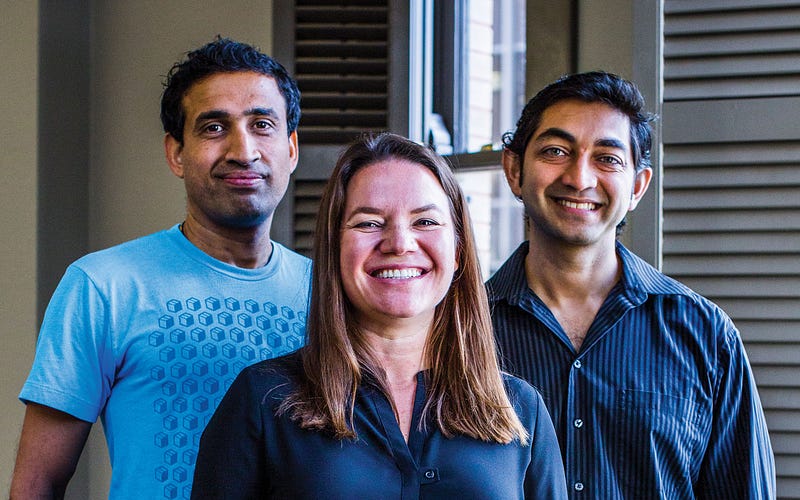
back-office management software company for online retailers was born in the New Venture Creation
class and nurtured through the TVL Accelerator program.
Sometimes, your first lofty idea isn’t the one that flies. Just ask Naruby Schlenker, MBA ’10, head of business development for the successful seven-year-old venture Ordoro.
Born in McCombs’ New Venture Creation class, Ordoro initially planned to offer a web tool for small- and medium-size online retailers to optimize their inventory. The platform allowed customers to know how many items were on their shelves and when to restock. They’d also avoid wasteful overstocking.
But when the team followed Adams’ 100-call rule, the students were stunned that they didn’t get any interest from potential customers.
“It turned out that one of the biggest problems these companies had was printing shipping labels,” Schlenker explains. “We realized the needs were much more basic than we thought they were. Once we figured it out, we knew we had to solve those problems first.”
The team came back with an app to manage all of the back-office activity after each online sale. Ordoro placed in the top five ventures in the 2010 semi-finals for Moot Corp, the predecessor to the TVL investment competition.
“By the time we graduated in 2010, we were starting to build the actual software,” Schlenker says. Ordoro’s software simplifies functions so customers no longer have to use multiple sites to print labels, send packages, track shipments, and organize data for every order. And, yes, managing inventory — a critical function — is built in, including alerts to reorder supplies.
Still, Schlenker had a hard choice to make when Johnson & Johnson offered her a job. She had interned with the company as an MBA student, and before she enrolled at McCombs, had worked six years for another corporate giant, Eli Lilly, including a stint in her native Venezuela.
But for Schlenker, the chance to launch a business with two talented classmates proved irresistible, even if they’d have to forgo salaries the first year. “We all turned down offers,” she says of her teammates and co-founders, CEO Jagath Narayan, and Marketing and Sales Head Sangram Kadam.
Soon after the partners graduated, Ordoro was accepted into the TVL Accelerator, entitling it to help from student-consultants. Today, the co-founders give back to the center that brought them together, speaking to classes and judging competitions.
“If we hadn’t called those 100 online retailers, we would still be developing an inventory tool that no one wants,” she says. But they did call, and today, Ordoro has raised $4.75 million and has 17 employees.
Earthly Labs
CO² Recapture Technology for Small-Scale Customers
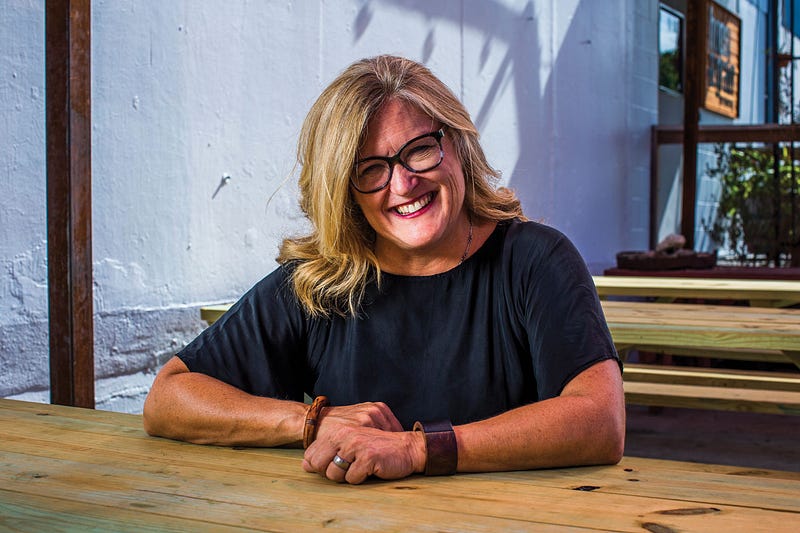
Amy George, MBA ’00, began her career in marketing for a pioneering architect in green-building technology. She was inspired.
“I started looking at sustainability as a lens for business,” she says. It’s through that lens that George has defined her career path.
She enrolled at McCombs in 1998, studying management and entrepreneurship. Afterward, she worked for seven years at Pavilion Technologies, which helps major multinationals decrease their energy footprint while at the same time increasing their productivity.
In 2008, George and MBA ’00 classmate Melissa Nathan, along with Nathan’s sister Paige Davis, created BlueAvocado. The award-winning company makes reusable storage bags to replace the plastic throwaways typically used for sandwiches and other everyday items.
George was president and CEO until last year when she stepped down, took a seat on the board, and leapt into her newest and possibly most ambitious venture: founding Earthly Labs, which is laying the groundwork to capture and recycle carbon dioxide emissions for small businesses and residential customers.
“I revisited my tech roots at Pavilion,” she says, “and wanted to solve one of the most pressing problems of our time.”
Large-scale CO² emitters have access to recapture technologies, but for smaller customers, not so much. She applied for student consulting help through the TVL Accelerator, and this spring, “a really cool” group of grad students in business, pharmacy, physics, and law teamed up to act as Earthly’s advisers.
The students helped assess the market, devise incentives, and identify a big potential funder. They “refined Earthly’s approach and accelerated the timeline,” George explains.
She recently began pilot recapture projects with breweries that use and expel CO², a major contributor to greenhouse gases. Once Earthly purifies the gas, the brewers can reuse it to make future beer batches. George wants to expand into the residential market because homes emit CO² when using natural gas and electricity. The plan is for Earthly to pay home- owners for the CO² it recaptures and then sell it to larger customers.
“I have kids, and the things I’m doing now affect the future they will inherit,” she says.
Vindolor
Developing Alternatives to Opioid Painkillers
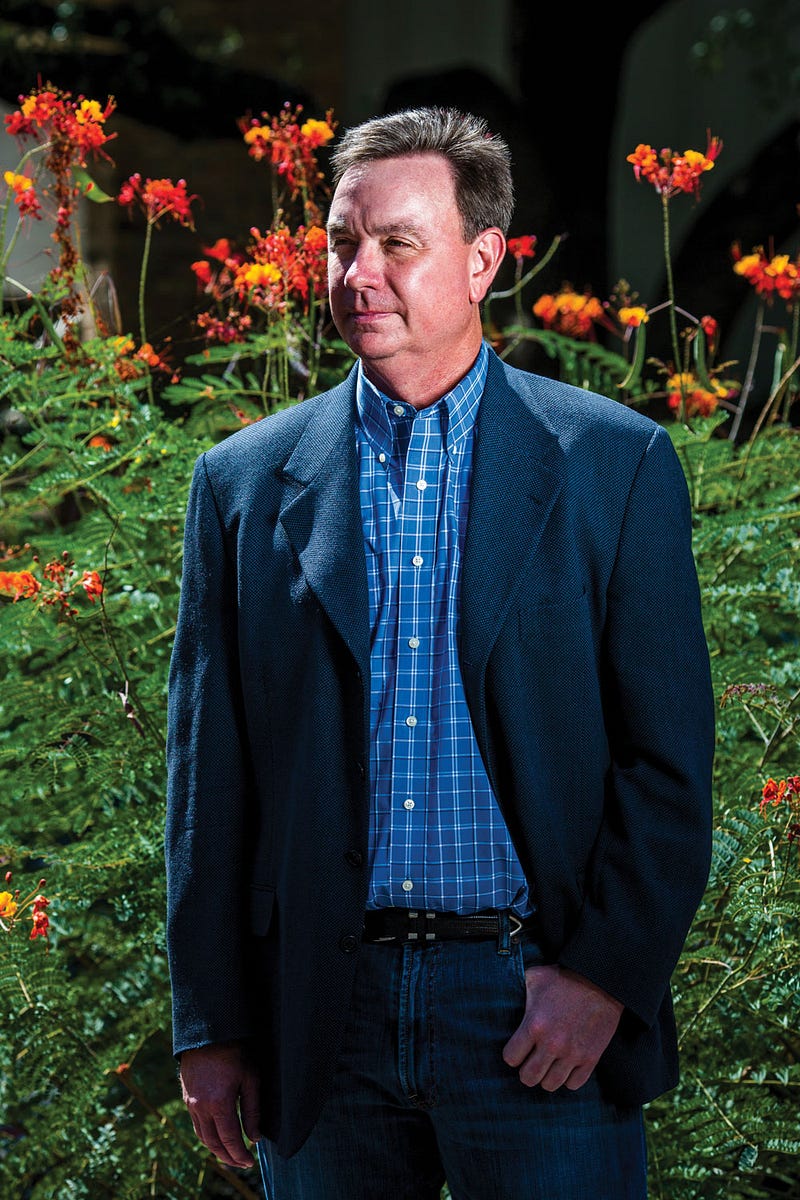
Overdose deaths from opioids have reached record highs, and federal and state lawmakers are casting a critical eye on painkiller prescriptions. The race is on to develop alternatives that are non-habit-forming.
Doug Baum, CEO at Vindolor Pharmaceuticals, is in the chase.
Baum, BBA ’90, MSTC ’07, has partnered with researchers at UT Health San Antonio who are formulating new non-addictive painkillers. Vindolor plans to license two of the medications in development, one of which is already in clinical trials, Baum says. Prior to co-founding Vindolor earlier this year, he served on pharma company boards and was president and CEO of Austin-based Xeris Pharmaceuticals for four years. He’s been involved in drug development since 1991.
While a master’s student at McCombs, his team won the Moot Corp competition in 2007 with another company he co-founded, MacuCLEAR, which develops medications to treat macular degeneration.
Earlier this year, Baum sought help from the TVL Accelerator. The graduate student consultant team assigned to him conducted market research and validation. Their financial projections estimated a $200 million market for the two drugs, Baum says. “They helped an entrepreneur and a company of one person do a lot of work over a relatively short period of time,” he says.
EyeQ
Computer Vision for Retailers
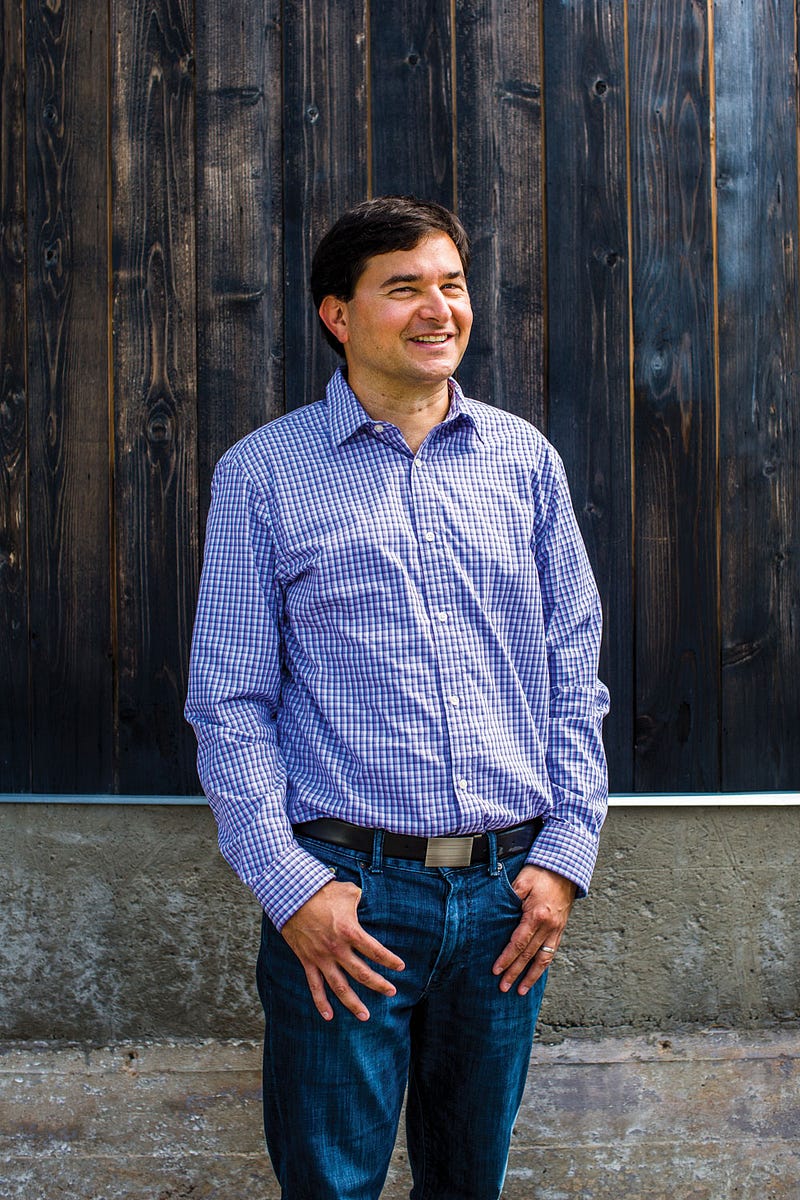
What motivates shoppers to buy the things they buy? Why are they drawn to one display but ignore another? And how can retailers make shopping more satisfying?
Arming brick-and-mortar retailers with insights into shoppers’ behavior is the goal of eyeQ, an Austin startup founded by Michael Garel, MBA ’12.
Before enrolling at McCombs, Garel worked for nearly a decade at Dell as a mechanical development engineer and then went to Xplore, a maker of rugged computer tablets. It was there that the entrepreneurial bug bit.
Garel wanted to create a company that uses computer vision, enabling machines to “see” and analyze information from images. He was taking Adams’ New Venture Creation course when he wrote the business plan for eyeQ.
After talking to retailers, Garel discovered they loved the idea of using artificial intelligence to gain insights into shoppers’ behavior — but they weren’t willing to pay for it.
So, he kept the idea of collecting data on customers as they interacted with displays, but downgraded the sophistication of the data-gathering. Instead of using a computer with artificial intelligence, he created a low-cost ($75) battery-powered device with a variety of sensors to compile simple information about shoppers, including age, gender, and purchasing behavior — all while protecting the person’s anonymity.
Retailers can use the data to determine whether a display is in the right place and attracting the shoppers they want. With eyeQ in place, Garel says clients are seeing increased sales and shopper engagement.
“We’re working with a brand right now that’s testing two different displays,” he says. “They’re trying to decide whether they can justify spending the $1 million it will take to go to the next level and employ artificial intelligence.”
Garel is no stranger to TVL. Five years ago, his eyeQ team won the competition. And with help from student-consultants in 2012 and again this year, the company has raised $3.2 million from investors. In its most recent go- round as a TVL Accelerator firm, eyeQ learned how much retailers spend on market research so it could price its product competitively.
Cutting Edge Gamer
Graphics Card Leasing Program Offers Big Benefits
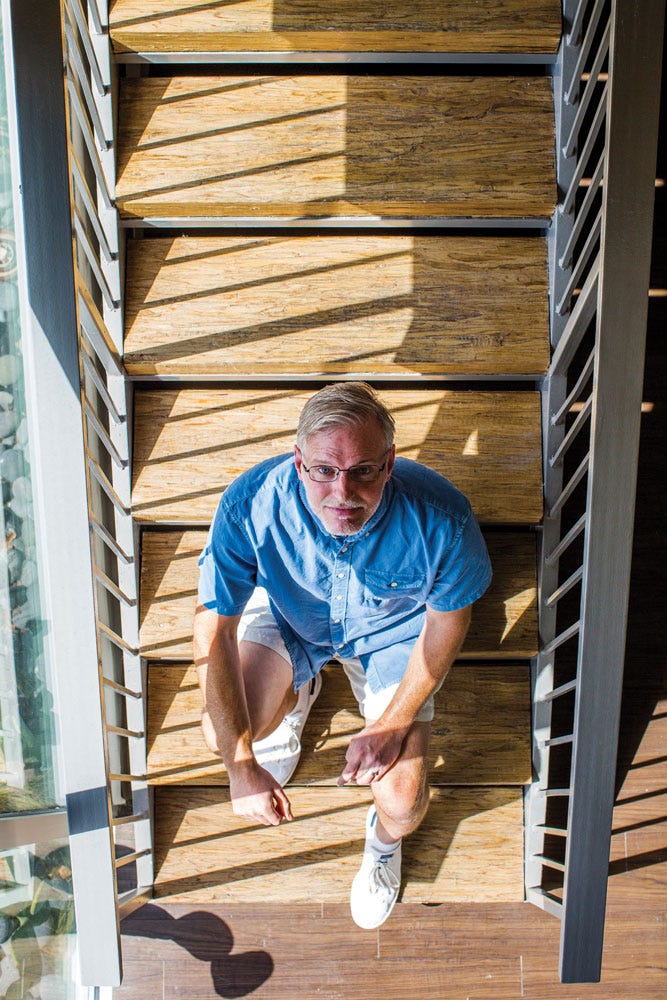
For serious gamers, realism and speed matter. A lot.
“They want the latest and greatest way to play,” says James Walsh, MBA ’05, co-founder and president of Cutting Edge Gamer. But new graphics cards that can translate computer pixels into realistic images for fast-paced 3D games come out often, and they’re expensive. Walsh’s solution? Lease the cards instead.
Gamers can pay a small monthly fee with the option to buy the graphics card at the end of a 12-month contract. It winds up costing the customer more in the end than an outright purchase would, but the leasing option gives gamers two big benefits. First, says Walsh, the upfront expense of buying a graphics card can be too much for some. Monthly installments make the cost manageable. Second, and just as important, Walsh’s company allows members to swap their cards for an upgrade — and a new lease — as better technology becomes available.
Customers seem to like the approach: Business has doubled since 2014, and Walsh admits they’ve got more demand than they can meet.
“Cutting Edge Gamer offers a great, affordable option for staying on the edge of the technology,” says Harlan Beverly, TVL’s assistant director. Beverly, who founded gaming hardware and software firm BigFoot Networks in 2005, now serves as one of Cutting Edge Gamer’s advisers. That means Beverly has had to recuse himself from TVL activities that involve the graphics card company, but even so, it’s not unusual for TVL faculty to work with students after they graduate from McCombs, he explains. “It’s part of what sets TVL apart from similar centers at other universities.”
Earlier this year, Cutting Edge Gamer was selected for the TVL Accelerator, where a team of six UT students was tasked with identifying ways to finance the company’s inventory, a longstanding problem.
“Typically, banks won’t lend to us,” Walsh acknowledges. So, the students vetted other options, including equipment financing firms — some of which said yes.
“That’s huge,” he insists. “This year we’re raising a million in new capital, thanks in large part to McCombs and TVL.”
From the Fall 2017 issue of McCombs, the magazine for alumni and friends of the McCombs School of Business.
About this Post
Share:


